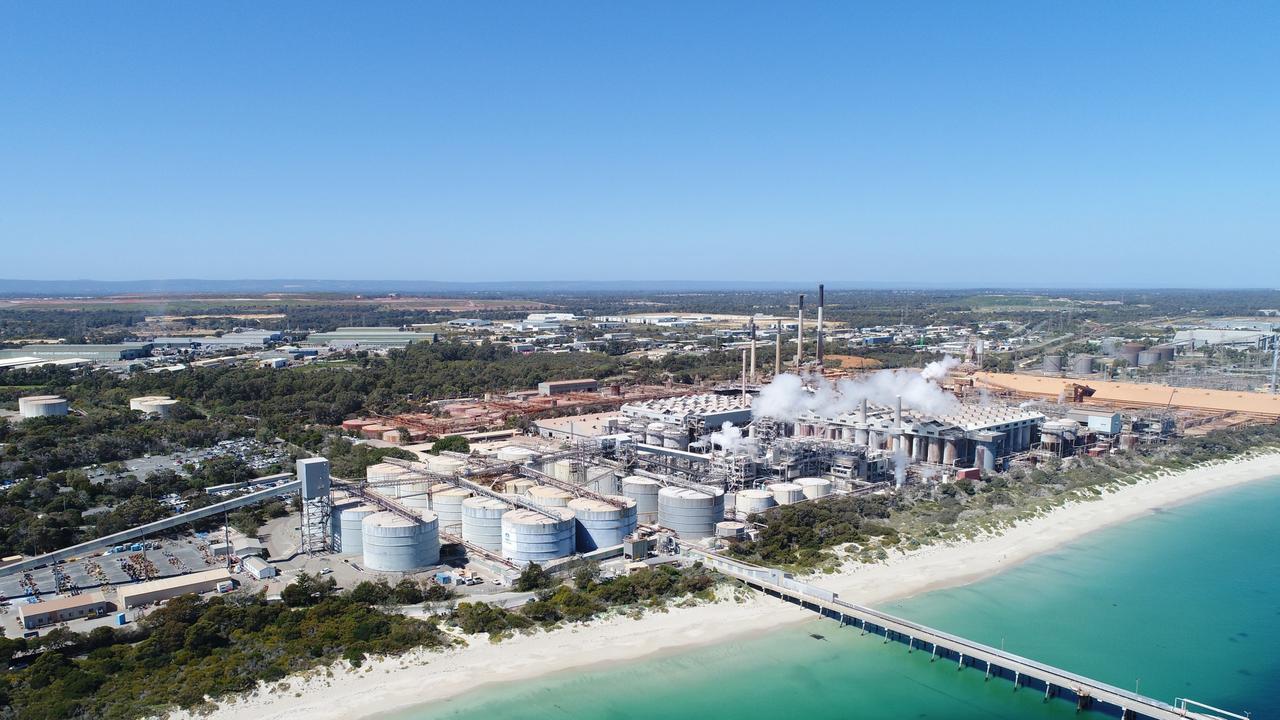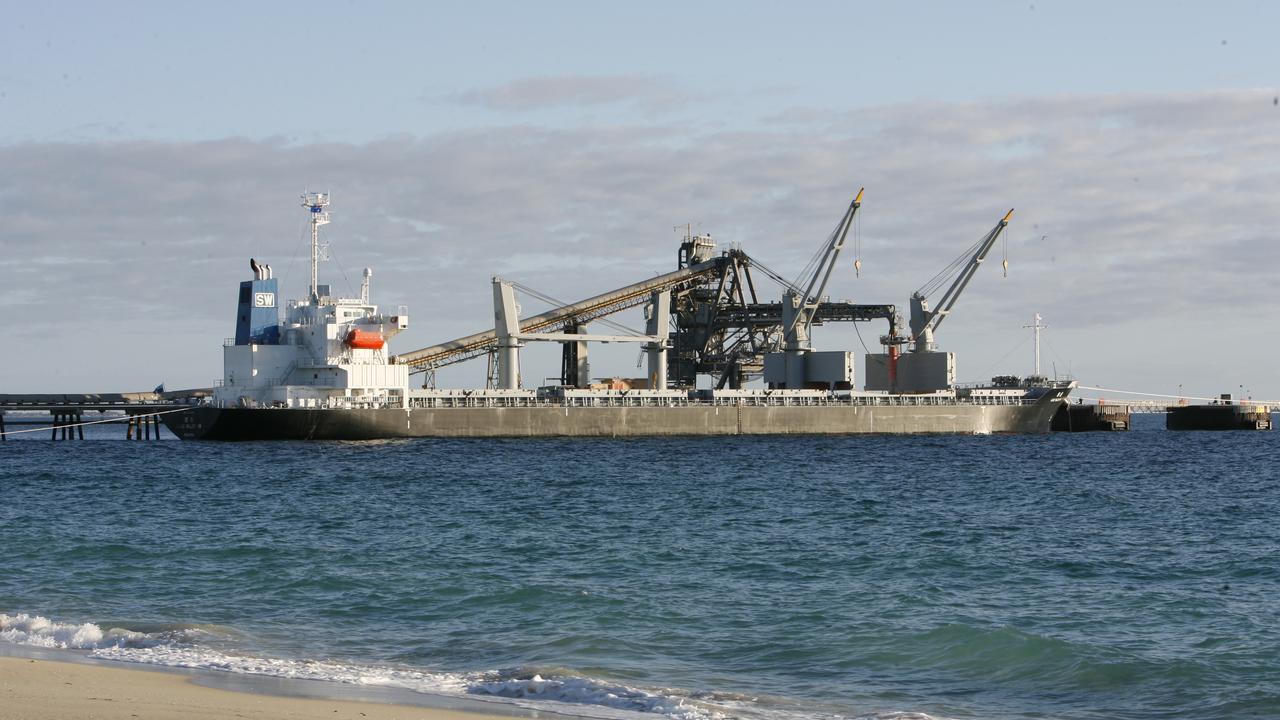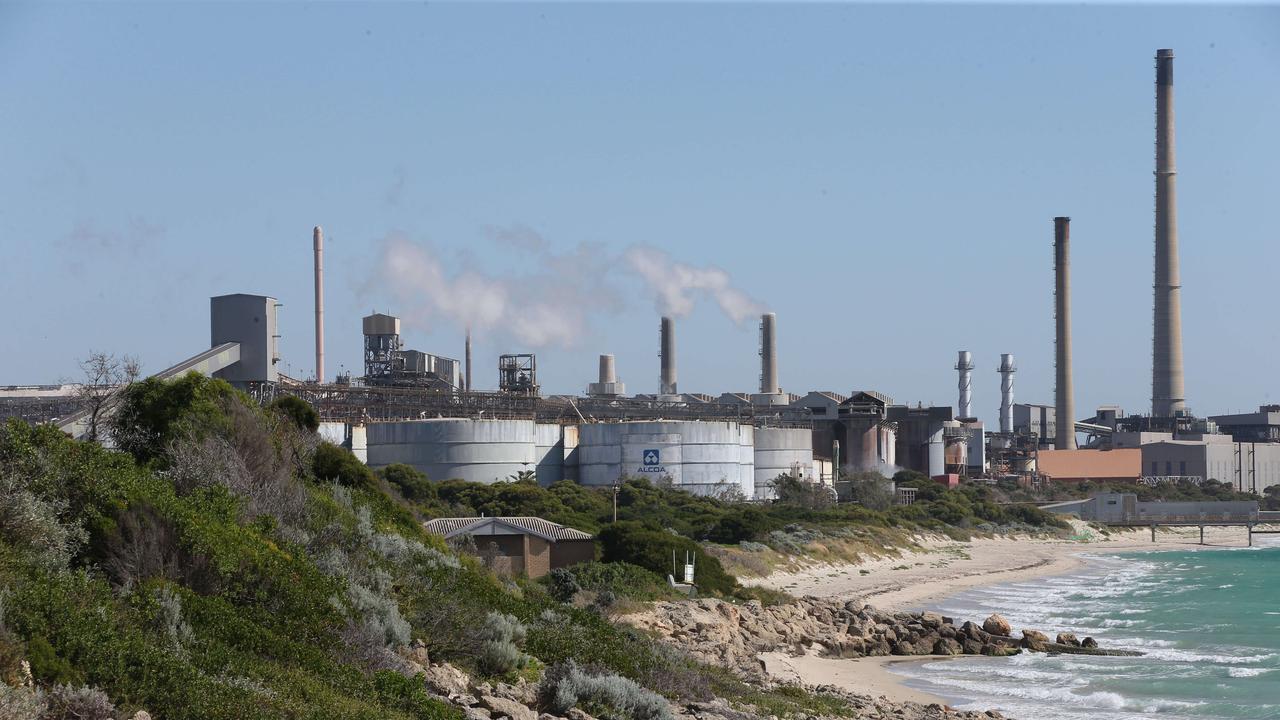WA Alcoa refinery closure could wipe out $650m from economy, expert says
One state is facing a massive economic blow after a major mining company announced its refinery would gradually close.
Mining
Don't miss out on the headlines from Mining. Followed categories will be added to My News.
The closure of a major mining giant’s refinery employing the “lion’s share” of workers will cost one state’s economy about $650m per year, an economic expert has warned as the company prepares to cut worker numbers down to just 50 over a year.
US-based Alcoa Corporation announced production at their Kwinana Alumina Refinery in Western Australia would be curtailed over the year, starting from the second quarter.
550 of the 800 jobs at the refinery will be cut by the third quarter of 2024, the company said in a lengthy statement on Tuesday.
But by the third quarter of 2025 this number will be reduced to 50 due to “certain processes” continuing at the plant.
Some 250 contractors at the refinery are also understood to be affected – bringing the potential number of jobs cut to about 1000.

The move has drawn criticism from WA’s State Labor Government and Liberal Opposition, with Premier Roger Cook calling on Alcoa to “do everything it can to support its workforce through this transition”.
Bankwest Curtin Economics Centre director Alan Duncan said without any redeployment of workers, the closure of the Kwinana refinery would equate to a loss of about $650m in economic output for WA’s state economy.
He said the true figure would depend on whether workers could be redeployed within the company, or to other industry sectors locally or in other regions across the state.
“How the closure of Alcoa ultimately plays out is hard to say,” Professor Duncan said.
“There will be a negative short-term impact of the closure on contractors and other supporting industry sectors.
“These will be offset through displaced workers from the refinery being redeployed … or picking up employment in other industry sectors in the locality.”
Matt Reed, Alcoa’s Executive Vice President and Chief Operations Officer, said the closure was based on the refinery’s age, scale, operating costs and the current bauxite grades being processed at Kwinana.


He also said poor market conditions were a reason for the phased shutdown.
The company has promised to work with affected employees to ensure they are supported with transitioning to other opportunities – including redeployment within the business or at other workplaces.
The shocking turn marks a sudden end to the 60-year refinery, which recorded a net loss (pre-tax and noncontrolling interest) of about $130m last year.
Kwinana’s port facilities will continue to operate, Alcoa said in their statement.
“Production at the Pinjarra and Wagerup refineries is not expected to be impacted by the curtailment at Kwinana,” reads.
Professor Duncan said Alcoa and the Perth-headquartered South32 account for the “lion’s share” of employment in WA’s bauxite mining and alumina production industry.
WA Department of Mines Industry Regulation and Safety (DMIRS) data reveals both industries are worth around $6.7bn to the state’s economy.
About 7000 full-time workers and another 1750 contractor-roles are employed in WA’s alumina and bauxite industries.
Professor Duncan said part of Alcoa’s decision could have been due to the effort required to process low-grade bauxite at the refinery, which he said was “energy-intensive”.

He explained the production of aluminium was energy-intensive, with about 70 per cent of emissions coming from the smelting process.
As a result, lower-grade bauxite would intensify production costs unless there was an improvement in the efficiency on the processing side.
“Whether lower grade bauxite remains viable in the future depends on whether there are innovations in production processes in the pipeline to keep processing viable,” Professor Duncan said.
“Switching to renewable energy and producing green alumina will reduce emissions significantly but the question is whether lower grades of bauxite make the green production process cost-prohibitive.”
Professor Duncan noted Alcoa’s Pinjarra plant, located south of Perth, had recently committed to rolling out more “environmentally-friendly processes”.
“This is key to the aluminium sector and especially for Australia which is the largest exporter of aluminium ores and concentrates in the world,” he said.
Alcoa has said it expects annual improvements of about $70m, beginning in the third quarter of this year.
In their statement, the company said they expected to record restructuring charges between $180 and $200m in the first quarter of 2024.
WA’s political scene has also reacted with some force, with Mr Cook pledging his government would “step up” and support local workers “retrain, re-skill and look for new career opportunities in the local area.”

“This is a very disappointing outcome, and Alcoa needs to do everything it can to support its workforce through this transition,” he explained.
“Kwinana is the industrial heart of Perth, and has a bright future with new job-creating industrial projects emerging on the strip – keeping Kwinana strong for generations to come.
“We will continue to work with Alcoa to ensure its other operations in Western Australia – including its Pinjarra and Wagerup refineries – support local jobs into the future.”
But WA Liberal leader Libby Mettam placed the blame squarely on Labor’s shoulders, claiming “tortuous environmental approval processes and energy supply uncertainty” played a part.
“Alcoa understands its obligations to the environmental approval process and has a long history of compliance,” she said.
Ms Mettam accused the Cook Government of making a “career of delaying and complicating” the process to prevent Alcoa’s access to higher grade ores.
“This a very shabby way to treat a company that has been operating environmentally safely and employing thousands of Western Australians for 60 years,” she said.
Originally published as WA Alcoa refinery closure could wipe out $650m from economy, expert says







